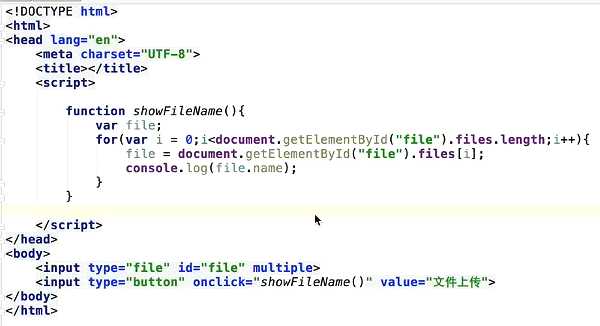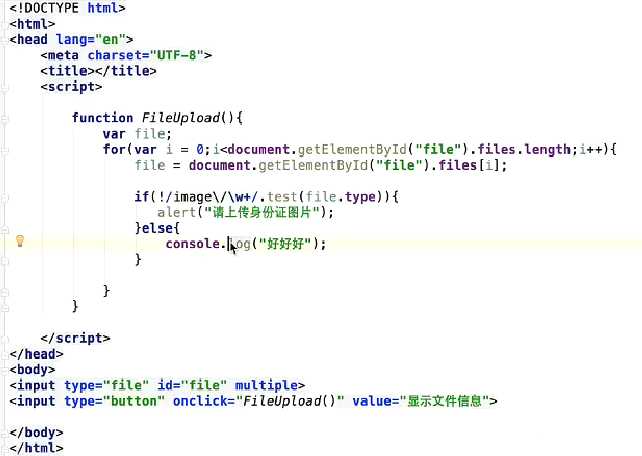标签:
1.FileList对象与File对象

2.文件API之Bolb对象
A Blob object represents a file-like object of immutable, raw data. Blobs represent data that isn‘t necessarily in a JavaScript-native format. The File interface is based on Blob, inheriting blob functionality and expanding it to support files on the user‘s system.
To construct a Blob from other non-blob objects and data, use the Blob() constructor. To create a blob that contains a subset of another blob‘s data, use the slice() method. To obtain a Blob object for a file on the user‘s file system, see the File documentation.
The APIs accepting Blob objects are also listed on the File documentation.
Constructor
Blob(blobParts[, options])
Returns a newly created Blob object whose content consists of the concatenation of the array of values given in parameter.
Properties
Blob.isClosed Read only
A boolean value, indicating whether the Blob.close() method has been called on the blob. Closed blobs can not be read.
Blob.size Read only
The size, in bytes, of the data contained in the Blob object.
Blob.type Read only
A string indicating the MIME type of the data contained in the Blob. If the type is unknown, this string is empty.
Methods
Blob.close()
Closes the blob object, possibly freeing underlying resources.
Blob.slice([start[, end[, contentType]]])
Returns a new Blob object containing the data in the specified range of bytes of the source Blob.
Examples
Blob constructor example usage
The Blob() constructor allows one to create blobs from other objects. For example, to construct a blob from string:
var debug = {hello: "world"};
var blob = new Blob([JSON.stringify(debug, null, 2)], {type : ‘application/json‘});
Before the Blob constructor was available, this could be accomplished through the BlobBuilder API, which is now deprecated:
var builder = new BlobBuilder();
var fileParts = [‘<a id="a"><b id="b">hey!</b></a>‘];
builder.append(fileParts[0]);
var myBlob = builder.getBlob(‘text/xml‘);
Example for creating a URL to a typed array using a blob
The following code:
var typedArray = GetTheTypedArraySomehow();
var blob = new Blob([typedArray], {type: ‘application/octet-binary‘}); // pass a useful mime type here
var url = URL.createObjectURL(blob);
// url will be something like: blob:d3958f5c-0777-0845-9dcf-2cb28783acaf
// now you can use the url in any context that regular URLs can be used in, for example img.src, etc.
Example for extracting data from a Blob
The only way to read content from a Blob is to use a FileReader. The following code reads the content of a Blob as a typed array.
var reader = new FileReader();
reader.addEventListener("loadend", function() {
// reader.result contains the contents of blob as a typed array
});
reader.readAsArrayBuffer(blob);
By using other methods of FileReader, it is possible to read the contents of a Blob as a string or a data URL.

间断上传文件的格式

3.文件API之FileReader对象
http://blog.csdn.net/zk437092645/article/details/8745647
标签:
原文地址:http://www.cnblogs.com/shamgod/p/5087399.html